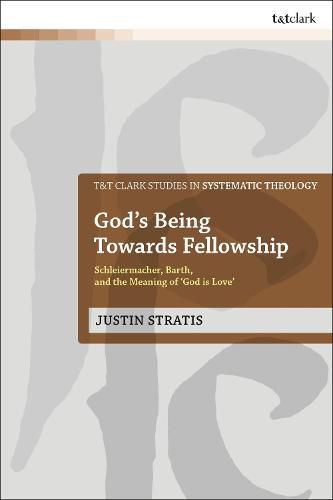Readings Newsletter
Become a Readings Member to make your shopping experience even easier.
Sign in or sign up for free!
You’re not far away from qualifying for FREE standard shipping within Australia
You’ve qualified for FREE standard shipping within Australia
The cart is loading…






Justin Stratis explores the meaning of the biblical phrase ‘God is love’ through an examination of two quintessentially modern Protestant theologians: Friedrich Schleiermacher and Karl Barth. This book contains both a detailed engagement with Schleiermacher’s untranslated lectures on Dialektik and their relation to his more well-known work, as well as a new assessment of Barth’s doctrine of God which both respects his radical innovations and yet places him within the stream of traditional, catholic trinitarianism.
After considering the complexities of theological predication, and comparing several classical and contemporary approaches to the implication of ‘love’, Stratis presents and ultimately commends the distinct approaches of Schleiermacher and Barth for their tendency to treat divine love as a ‘conclusion’ to the doctrine of God, rather than as a conceptual starting point. In contrast to many contemporary approaches, Stratis concludes with the suggestion that God’s love is best conceived as his being toward fellowship, rather than as the eminent instance of loving fellowship understood according to human experiences of love.
$9.00 standard shipping within Australia
FREE standard shipping within Australia for orders over $100.00
Express & International shipping calculated at checkout
Justin Stratis explores the meaning of the biblical phrase ‘God is love’ through an examination of two quintessentially modern Protestant theologians: Friedrich Schleiermacher and Karl Barth. This book contains both a detailed engagement with Schleiermacher’s untranslated lectures on Dialektik and their relation to his more well-known work, as well as a new assessment of Barth’s doctrine of God which both respects his radical innovations and yet places him within the stream of traditional, catholic trinitarianism.
After considering the complexities of theological predication, and comparing several classical and contemporary approaches to the implication of ‘love’, Stratis presents and ultimately commends the distinct approaches of Schleiermacher and Barth for their tendency to treat divine love as a ‘conclusion’ to the doctrine of God, rather than as a conceptual starting point. In contrast to many contemporary approaches, Stratis concludes with the suggestion that God’s love is best conceived as his being toward fellowship, rather than as the eminent instance of loving fellowship understood according to human experiences of love.